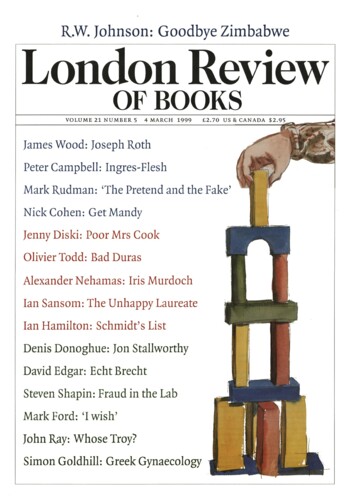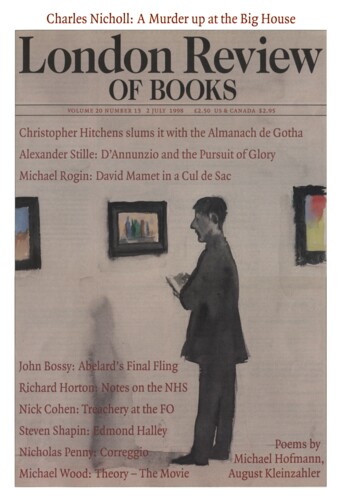Scientific Antlers: Fraud in the Lab
Steven Shapin, 4 March 1999
It is a contemporary American morality play. The leading roles are played by an alpha male and his junior female colleague; bad behaviour between them is alleged; accusations of lying fly about; charges of cover-up garnish the original accusation; an ad hoc government investigative team runs amok, and due process is trampled underfoot; the credibility of the senior male is tarnished, and he is deemed unsuitable for high office; reputations are damaged; valued institutions are undermined; colleagues turn against each other and the whole affair has a poisonous effect on normal social relations. DNA evidence is crucial to the case, but all finally comes down to questions of intent which material evidence of deeds cannot unambiguously decide. Ultimately, many in the audience to whom the drama played for so long weary of it and wonder whether the chase has been worth the quarry, yet all are agreed that both the alleged bad behaviour and the means of making it accountable are deeply symptomatic of the state into which America has got itself.


